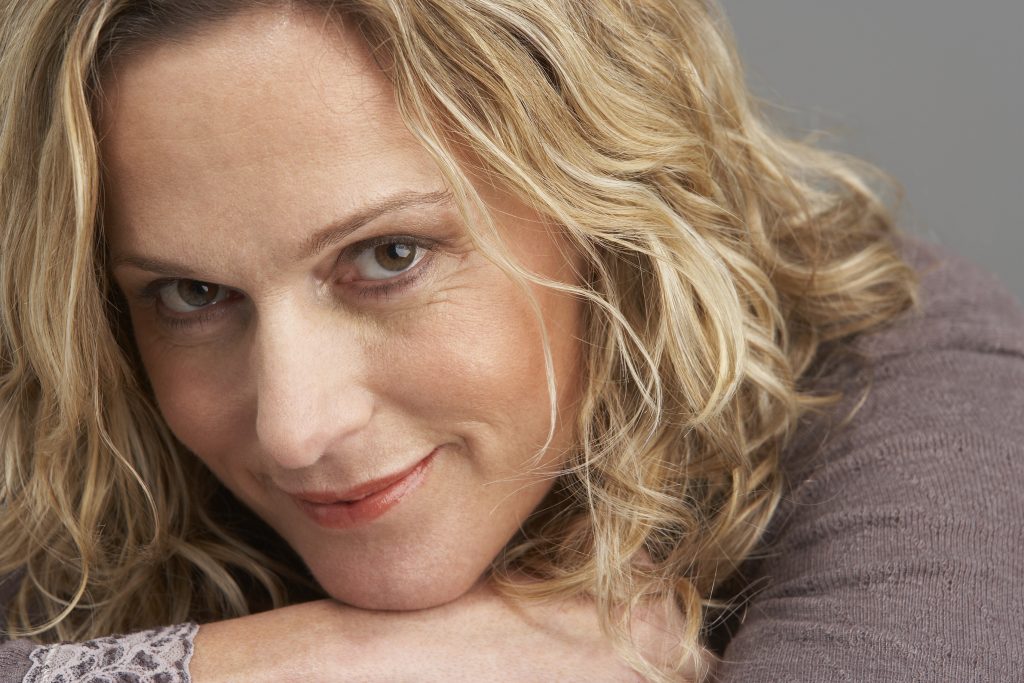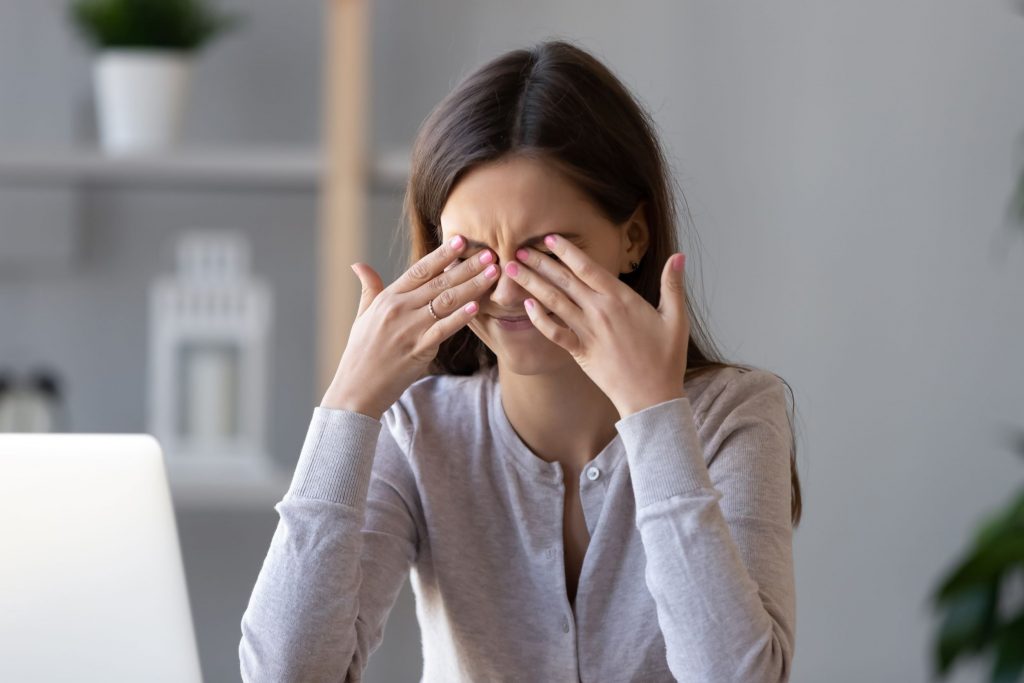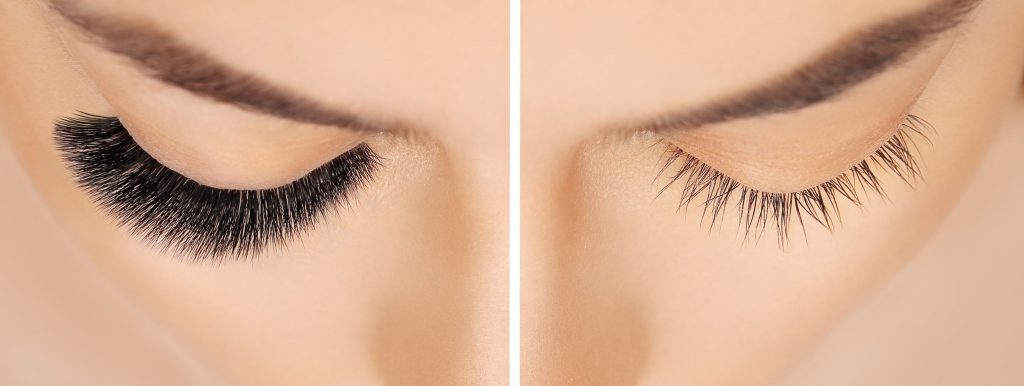We’ve all heard the saying “The eyes are the windows to the soul”. They tell a lot about you, can communicate unsaid words and can affect how attractive you feel.

But do your eyes seem to be fading away? Communicating less? Do you look at yourself and feel that something is missing?
It could be that some of the change is due to thinning eyelashes.
This wouldn’t be a big deal except that your lashes give your eyes definition and enhance your face. Not to mention the reason we have lashes is not to just to hold mascara but to help keep debris (dust, pollen, dirt) from getting in your eyes.
So, this is a real thing. Not imagined. It actually has a name: Mandarosis. It goes along with thinning hair and eyebrows.
There are several causes and of course, your age and menopause are among the most common.
A little basic info about eyelashes and hair in general.
All hair is made primarily of the protein keratin. Proteins are made up of amino acids. Some proteins are produced in your body while others need to be consumed daily. Some amino acids need to be consumed as well, so your body can produce necessary proteins.
Each lash or hair grows out of a hair follicle or hair bulb. Each follicle relies on blood flow to deliver vital elements that keep hair and underlying skin healthy. Healthy, strong, elastic skin provides a perfect anchor for each follicle.
Collagen is another protein for maintaining thick hair. It makes up a third of the protein in your body and is the protein responsible for maintaining strength and elasticity in skin which in turn is responsible for a strong anchor for hair and lashes. As we age, we produce less collagen so the skin loses strength and elasticity which affects all hair including eyelashes.
Peri and post-menopausal women have an additional factor. The hormone estrogen plays a primary role in the production of collagen and lower estrogen levels contribute to the lower production of collagen. Lower collagen levels mean the skin is weaker and less elastic.
Hair follicles including eyelashes, go through a continuous life cycle. Anagen (growth phase), catagen (transitional phase), and telogen (resting phase). Lashes fall out following the resting phase, normally 5-10 lashes per day. The cycle usually lasts 6-10 weeks, slowing down as we age and as the production of estrogen decreases during menopause. Less estrogen means less collagen for thick hair.
Causes for thinning eyelashes that may be contributing to thinning eyelashes as well.
Rubbing your eyes may be the culprit as it can damage the hair follicles.

You may find yourself rubbing your eyes from an eye irritant such as an allergen (pet allergy, hay fever, etc), a reaction to eye makeup (usually mascara) or not removing or aggressively removing eye makeup.
Generally, finding the underlying cause of rubbing your eyes will help eliminate eye rubbing and allow lashes to regrow.
Dry skin is known cause of eyelash loss because eyelashes lose their ability to retain moisture.
In addition, dry skin is weaker and less elastic making it more likely for you to lose lashes.
Stress can be a major cause of eyelash loss.
Stress can affect our sleep, cause hormonal changes and affect the way your body absorbs nutrients. All three are major elements in our overall health which will affect hair loss.
A poor or unbalanced diet may be responsible.
A diet that lacks adequate protein or Vitamins H (Biotin or B7), C, E, B6, may cause thinning lashes since all are vital to producing and maintaining healthy hair, eyelashes and skin.
There a number of health conditions and medications that may be responsible for thinning eyelashes.
You should consult your physician if you have concerns about health conditions or your medications. Eye infections, thyroid conditions, cancer and cancer treatments, cataract surgery and bulimia and anorexia are possible conditions that may cause hair and lash loss.
Effluvium is a condition that occurs 2-3 months after a stressful event such as a long illness, childbirth or surgery. More hair than the normal falls out at one time. It’s usually not permanent and generally no damage to the hair follicles.
Medications can be a factor in hair loss. Among them are medications that treat high blood pressure, high cholesterol, depression, arthritis, gout, and those used to balance thyroid levels. Oral acne meds, anabolic steroids and high levels of Vitamin A may also cause loss of hair and eyelashes. Lashes usually grow back when the medications are stopped.
Last but not least, heredity may be the underlying cause of thin eyelashes.
Look at your family members. Do you see a pattern? If so, chances are that you are predisposed to thin eyelashes.
So, what if anything can be done to change thinning eyelashes?
Just like other aspects of our health, women over 50 have to be consciously diligent in taking care of our bodies by eating nutritiously, exercising and changing our daily grooming regimens to address what feels like never-ending changes to our bodies. While we can’t turn back the clock, we can do our best to look and feel our best.
Ramp up your nutrition.
As we get older, we do not process nutrients as quickly or as efficiently as when we were younger, regardless of how healthy we are. Make sure you are getting adequate protein and biotin (Vitamin H or B7) daily as they are important to making and maintaining healthy skin and thick hair including your eyelashes.
Another reason to make sure you’re including exercise in your daily schedule.
Not only is it important for your overall health but it improves circulation to skin and hair follicles, delivering the proteins and nutrients needed to keep your eyelashes healthy. If you’re not exercising regularly, this may be the impetus you need to get moving. If you have a regular program, step it up a bit.
Not sure what to do? Don’t like exercise? Looking for a workout that is short, sweet and delivers results including increasing blood flow, check out HIIT For Women Over 50.
Consider a change to your grooming habits to encourage eyelash growth or slow down the rate of eyelash loss.
Look at the grooming habits and products you are currently using. Simple things like removing your makeup with a gentle remover before bed or being especially careful with your eyelash curler may make a difference. You may want to consider a different mascara if you find yourself rubbing your eyes when you use your current product.
Enhance your eyes with false eyelashes or fake it with makeup.
To give definition around your eyes that can be lost with thinning lashes, try using a soft kohl eyeliner to camouflage the gaps in the lash line. Simply dot it close to the base of the upper lash line.
Check out other make-up tips for waking up your make-up after menopause from Make-Up Artist Paula Murphy on her blog.

Or you may want to check on other services of a specialist for solutions including lash extensions or lash implants.
Special products may encourage lash growth.
There are several growth serums now available both by prescription such as Latisse and over the counter products like Revitalash. There are other options available at salons. These products generally have to be used continuously for 4-6 weeks before seeing results. Results are mixed with these products so do your research before purchasing. Check out thedermreview.com to check out what dermatologists are recommending.
Consult a physician if you feel you may have a medical condition causing your eyelashes to thin.
They can test for various diseases, medical conditions, or check your medications that may be causing hair loss. They can also check for vitamin or thyroid deficiencies that may be present. Both Vitamin E and Biotin are linked to healthy hair.
Ultimately, keeping our lashes comes down to taking care of ourselves and possibly changing some everyday routines in order to grow and keep our eyelashes, not unlike taking care of the rest of our bodies.
We know nothing will turn back time, but we can go down fighting for our lashes!

prime biome
Wednesday 9th of April 2025
Your blog has quickly become my go-to source for reliable information and thought-provoking commentary. I'm constantly recommending it to friends and colleagues. Keep up the excellent work!